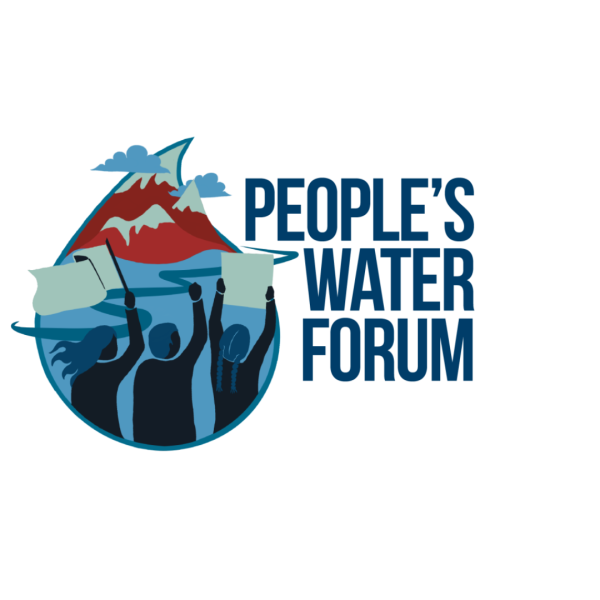Corruption in the Water Management Sector Threatens Citizens' Lives

The People's Water Forum (PWF), which was supposed to take place in Bali on May 20th 2024, received threats and violence from state apparatus and non-state actors. PWF is a forum for civil society groups that criticize the World Water Forum organized by the government based on capital interests without fully involving citizens. Whereas in principle, access to water is part of human rights whose fulfillment must be guaranteed by the state.
State’s repressiveness has its own cause. The government is a party that has interest in gaining access to capital in order to build a number of water supply and water resources management infrastructure projects, both upstream and downstream. This is proven by the agreement on the funding of the Drinking Water Supply System (SPAM) between the government through the Director General of Cipta Karya of the Ministry of Public Works and Public Housing and K-Water, a South Korean-owned company with an investment value reaches the total of Rp2.4 trillion (US$149 million).
We need to be reminded that in 2018 the Corruption Eradication Commission (KPK) handled a bribery case for SPAM development at the Ministry of PUPR involving a former Member of the Supreme Audit Agency, Rizal Djalil. Besides Rizal, there were 8 (eight) suspects from government and private elements who were also named as suspects. The modus operandi revealed by the KPK is quite common: the bribe money is given by the private sector to SPAM officials so they can arrange project auctions and provide convenience in project supervision, including to ease the disbursement of the budget.
Development related to the water sector has been included in the National Strategic Project. Based on Indonesia Corruption Watch (ICW) records, from 2016 to 2023 the government has procured 761 packages consisting of dams, irrigation networks, and raw water networks with a total value of Rp76.8 trillion (US$4.7 billion) spread throughout Indonesia. 29 of these projects were carried out in Bali with a total budget of Rp2.5 trillion (US$155 million).
The influx of investment into Indonesia needs to be anticipated by all investors because of the rampant corruption practices. Based on the ICW’s results of the trend of corruption cases handling from 2016 to 2023, it shows that there are 128 corruption cases related to projects in the irrigation sector. The projects were varied, from the improvement of irrigation networks, construction of clean water channels, to PDAM (Regional Drinking Water Company) pipe network installation projects. Thus, the state losses arising from corruption in the 128 projects reached Rp455 billion (US$28.3 million). The modus operandi were also varied, with the highest ranking in fictitious projects (42 cases), followed by budget misuse (29 cases), and embezzlement (18 cases).
Far from successful water sector management, Indonesia as the host of the World Water Forum ironically shows that the management of the water sector is still full of corrupt practices. This also has an impact on the situation where residents in many areas are forced to buy the unaffordable clean water due to insufficient clean water supply, or spend more money to buy or rent water pumps. Even worse, citizens are facing repression when defending their rights - or simply when they just want to have a discussion about it.
Repression targeting civil society groups, especially environmentalists and water rights defenders, is a clear form of action by the government and other influential non-state actors to diminish spaces for public participation. This can certainly affect citizens' efforts to monitor government development projects that tend to be corrupt, and create an atmosphere of fear.
Therefore, ICW urges that:
- Investors should rethink about investing in Indonesia when there is no room for meaningful public participation in the development planning process;
- Investors must stipulate a clause in their agreement with the Indonesian government to meaningfully involve citizens in the entire process of equitable development;
- Investors are obliged to supervise the use of the budget that has been invested in order to minimize the potential of corruption;
- Investors are obliged to withdraw all their investment funds from Indonesia whenever there is corruption;
- The government must involve citizens in every policy formulation and development process, especially people who are directly affected by those policies and developments;
- The government must ensure that citizen-based monitoring mechanisms can be implemented without the potential of SLAPP (Strategic Lawsuit Against Public Participation) or other forms of false accusations;
- The government must ensure that all citizen reports on development projects that potentially involve maladministration and corruption must be followed up;
- The government, through law enforcement officials, must stop all forms of repression and intimidation against civil society groups and active citizens.
Indonesia Corruption Watch
May 23th, 2024
Contact Person
Seira Tamara (Researcher ICW)
Diky Anandya (Researcher ICW)
Wana Alamsyah (Researcher ICW)










